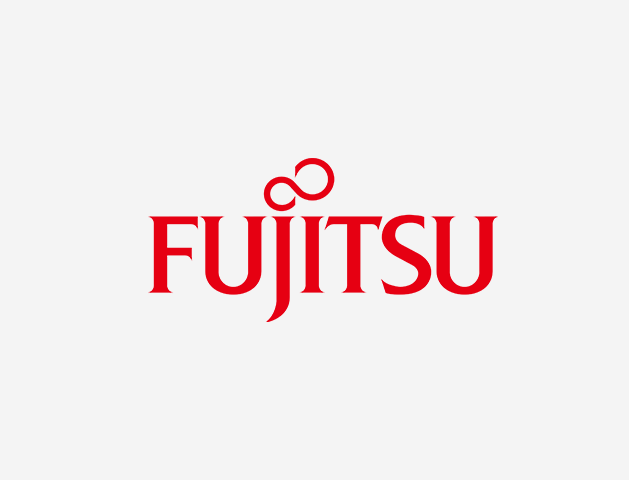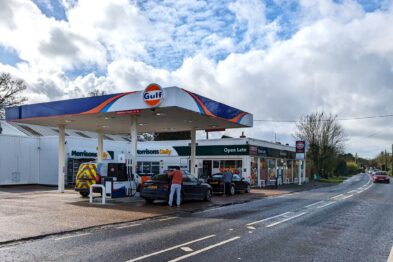Fujitsu
Situation
An employee in manufacturing at the Fujitsu plant in Augsburg requests the goods required for assembling new notebooks. At the „factory supermarket“, where the components are available on demand, the required goods are loaded onto a number of carts. Small radio-controlled displays on each cart continuously exhibit relevant information such as the product line or the quantity of goods in the work packet. The bar code on the ePaper display is read by means of a hand-held scanner. This process is repeated at various stations until the goods arrive on the production floor ready for the employees – without a single piece of paper to be seen.
“Up until mid-2016, we were using pieces of paper for the transportation carts with details about the relevant order or work packet.”
Roland Lechner, Manager of Production Logistics
Requirements
One requirement for the digital ePaper solution was to integrate it into the existing network infrastructure and management system, and for it to be fully mobile for operation in all of the production halls.
“Thanks to the ePaper technology, the image resolution is razor sharp.”
Roland Lechner, Manager of Production Logistics
Realization
A total of six WLAN access points were installed by the partner LANCOM – four in the supermarket and two in the production halls – which control the SES_imagotag ePaper displays by means of a highly energy-saving wireless technology. The access points provide wireless coverage across the entire area and ensure that the labels mounted on the mobile carts have a steady signal when roaming. The labels, which measure just 2.7“ across, display the correct information thanks to an interface (API) that links the ePaper solution to the customer‘s own production planning system. A displayed bar code can be scanned by a hand-held device and leads directly to product family of the goods, the quantity of goods on the cart, the storage lane of the cart, and a time stamp with the date.
“We can use different font sizes to display large amounts of information as required.”
Roland Lechner, Manager of Production Logistics
The network was not the only thing to be quickly installed. The displays are easily mounted: A snap-in mounting fixes them to a bar on the cart and they can be removed again at any time, for example for a battery change. The display indicates a need for battery change automatically and shows service technicians when the cart needs to be maintained. The relevant information comes directly from the production planning system.
Outcome
For Fujitsu, the new displays signal a consistent move away from information in paper form. The company benefits from savings in several ways, such as the cost of the paper, and the fact that there are no printers that need expensive servicing. Also eliminated is the constant changing of the paper notes. The strengths of the solution are most obvious when it comes to the flow of materials in manufacturing. When new goods are ordered from the supermarket, carts with the appropriate number of components are formed into a train for transport to the production halls. There, the carts with their goods are delivered to the destination points.
“The displays constantly show all of the necessary data and, at the same time, help with the quality assurance of material flows.”
Roland Lechner, Manager of Production Logistics
Future Outlook
The potential of the wireless ePaper solution from LANCOM and SES-imagotag is not restricted to the manufacturing alone. Frank L. Blaimberger, Head of Services & Tools from Fujitsu has other, quite specific ideas going forward. There are other areas where the displays can be used productively and generate added value, for example for a more dynamic control over the maintenance intercals of the carts.


